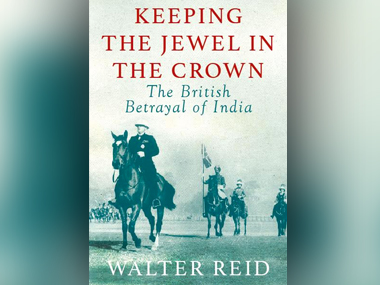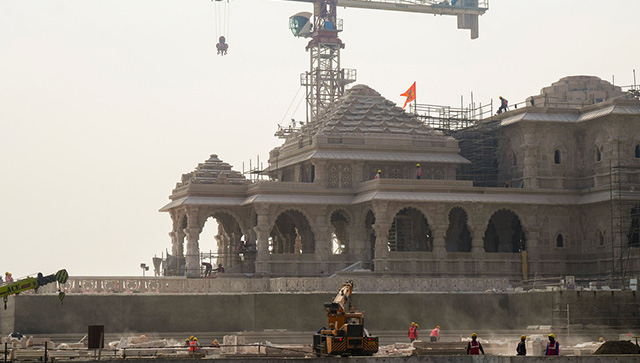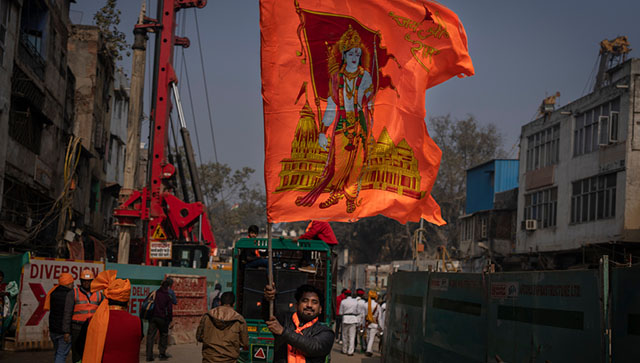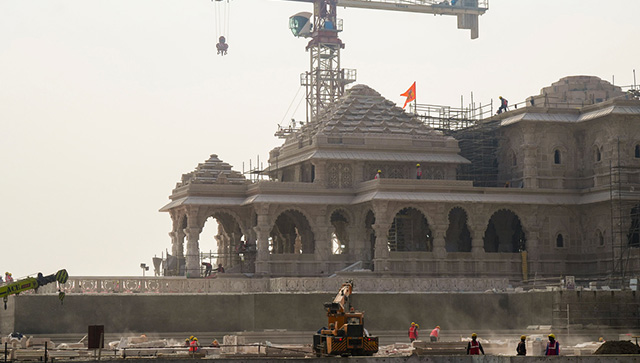Editor’s note: In his new book Historian Walter Reid offers another glimpse into the long explored and considered role of the Empire in shaping India’s colonial history. In this extract from the chapter titled ‘Looking Behind Churchill’s Words’, Reid argues that one of the few faults that Winston Churchill had, were found in his treatment of India.
Churchill plays such an important part in this story – first in his opposition to the India Bill and indeed any attempt to advance India’s progress in the 1930s, and then as prime minister, when he presided over (if that’s the correct way to describe his obstructive and negative role) the series of initiatives that included the Cripps Mission and its post-dated cheque – that his standpoint deserves some analysis. He was more complicated than most of the diehards, but understanding his position helps to understand what motivated some of his simpler supporters.
Churchill’s faults were few and his virtues were abundant. The former, alas, were more evident than the latter in relation to India. I yield to no one in my admiration for Churchill, and my admiration is not confined to his role in the Second World War. I have summarised his qualities elsewhere. I said, ‘The scale and range of his abilities was matched by a profound sense of humanity and magnanimity’.
I stand by that evaluation of his career taken as a whole. But that is not to say that he never faltered, and India was not his finest hour. It is all the more delicious to reflect that Baldwin, apparently genuinely, toyed with the idea of making him Secretary of State. The prime minister wrote to Irwin in February 1929: ‘I have had an idea (among many!) of putting Winston at the India Office. He was very good all through the Irish troubles: he has imagination, courage: he is an imperialist: he is a Liberal. BUT – we do know the risk’.
He was ambitious and aggressive in his self-promotion. Lloyd George said of him in 1934: ‘He would make a drum out of the skin of his own mother in order to sound his own praises’. He was for most of the 1930s a potential leader of his party, and an element of his Indian campaign was certainly informed by selfish ambition. Paradoxically, the campaign threw him into such ‘a politically ruinous stance’ that it, more even than his defence of Edward VIII, so endangered his political career that only war rescued him. Harold Macmillan, from the Left of the Conservative party said, ‘The majority of the party regarded [Churchill’s> attitude as reactionary and unrealistic’.88 Other critics described him as unbalanced, scheming and dishonest.In his exuberance he expressed himself in words and attitudes that were extreme, indeed downright silly. For instance in 1942 he said to Leo Amery, then Secretary of State for India: ‘I hate Indians. They are a beastly people with a beastly religion.’ His positions in opposition were always less judicious than when they were tempered by the responsibility of office. All responsibility tended to refine his judgment and absolute responsibility tended to refine it absolutely. But only tended to: in the case of India he was so far committed before he became prime minister that the beneficial restraint of authority had only a limited effect.
He was in part simply a product of his time. In his autobiography, MyEarly Life, Churchill described himself as ‘a friend of the Victorian era’. Much later in his life, in 1952, he reflected to his doctor, Charles Wilson, ‘When you learn to think of a race as inferior beings it is difficult to get rid of that way of thinking; when I was a subaltern in India the Indians did not seem to me equal to the white man’. Irwin recognised the influence of Churchill’s youth. He suggested that his views on India were like those of ‘a subaltern a generation ago’, and that therefore he might like to bring himself up to date by meeting some Indian activists who were in London at the time. ‘I’m quite satisfied with my views on India. I don’t want them disturbed by any bloody Indian.’
Paul Addison has concluded that Churchill’s fundamental views were settled in the period between 1895, when he decided to make his career in politics, and 1900 when he became a Member of Parliament. Addison is of the view that of all the books which Churchill read so voraciously at this time in order to prepare himself for public life, the one which made most impact on him was Winwood Reade’s The Martyrdom of Man. This book was published in 1872 and was based on the implications of the then popular notion of Social Darwinism. The nub of Reade’s version of the theory was that advance took place by a process of struggle and striving, of which warfare was the epitome. Suffering was a price worth paying. When a nation lost the appetite for conflict it was doomed to decay.
Churchill saw the collapse of anciens régimes in and after 1918 as a symptom of decay and decline, evidence of a lack of the desire to strive. He did not wish to see Britain entering a similar phase. This was the philosophy Keeping the Jewel in the Crown which, in part, animated him in his campaign against the India Bill. In the course of that campaign he said that if Britain lost India she would sink within two generations to the level of minor powers like Portugal. So she did, though the loss of India was not the cause.
Even before the First World War he had concluded that Britain derived no financial benefit from India, and his desire to hang on to the jewel in the crown was not motivated by commercial considerations. In February 1922 he told a conference of ministers:
An idea was prevalent among many people, both in India and at home, that we were fighting a rear-guard action in India, that the British Raj was doomed, and that India would gradually be handed over to the Indians. He was strongly opposed to that view of the situation. On the contrary, we must strengthen our position in India . . . He believed that opinion would change soon as to the expediency of granting democratic institutions to backward races which had no capacity for self-government.
His approach was not entirely uninformed. Remember that Churchill’s first government office was as Under-Secretary of State for the Colonies under Campbell-Bannerman. He was appointed in December 1905. He had then had recent experience of the Empire not only in the South African War, but also in India as a subaltern. He had more authority as Under-Secretary of State than might have been expected, as the Colonial Secretary, the Earl of Elgin, was in the House of Lords and more interested in his estates than in the minutiae of his responsibilities. At the Colonial Office, of course, neither Elgin nor Churchill had responsibility for India. Churchill did, however, have to deal with Gandhi, at this stage in his career in South Africa promoting the case of the Indian community, there subject to numerous indignities and constraints. Gandhi came to London in November 1906, to complain that Indians were now being fingerprinted as part of their official registration in South Africa. He went back to South Africa to launch a campaign of passive resistance. Churchill and Gandhi were never going to be friends.
Excerpted with permission from ‘Keeping the Jewel in the Crown’ by Penguin Books India.


)




)
)
)
)
)
)
)
)